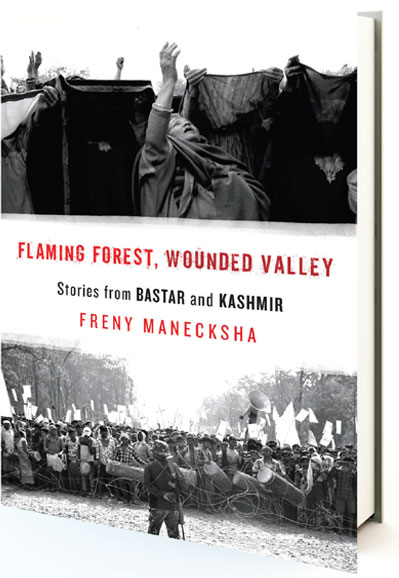Unheard Voices
How Adivasis are being pushed out of their jal, jungal and jameen. An extract
Freny Manecksha

In September of 2011, Linga was arrested on charges of acting as a courier between the Maoists and the Essar company that has many business interests in the state. Essar had built the 267-kilometre-long pipeline carrying iron ore slurry from Kirandul to the port of Visakhapatnam, which had been breached by Maoists in many places.
Soni, who was co-accused in the case, was arrested a month after Linga. In the Dantewada police station, where she was held under police custody, she was stripped, tortured and was subjected to sexual violence with stones being inserted into her vagina, at the behest of police superintendent Ankit Garg, according to her petition. This bold declaration with detailing of torture led to an inquiry initiated by the apex court and the medical examination in Kolkata confirmed the allegation. Eventually given bail, she was acquitted in all eight cases. On 22 March 2022, she was found not guilty in the last case filed by the Dantewada police in 2011. ‘Can they give the twelve years back to me? Was her statement to the press. Anil Futane was also arrested on charges of being a Maoist. Acquitted in 2013, he died shortly afterwards, whilst Soni was in jail, of serious neurological complaints, sustained perhaps because of the savage physical assault he underwent in prison.
In her small home in Geedham, Soni recalled her days in jail, not in terms of suffering, as I thought she would, but as spaces of learning. ‘The state thought they were imprisoning me but jail became my training ground. I gained valuable lessons; every inmate’s story was like the study of a new subject. I realized that the only way to live was for one’s people’.
Why did she term her earlier life lalchi (greedy)?
‘I was self-indulgent. I w
Subscribe To Force
Fuel Fearless Journalism with Your Yearly Subscription
SUBSCRIBE NOW
We don’t tell you how to do your job…
But we put the environment in which you do your job in perspective, so that when you step out you do so with the complete picture.







